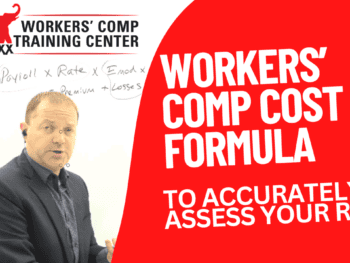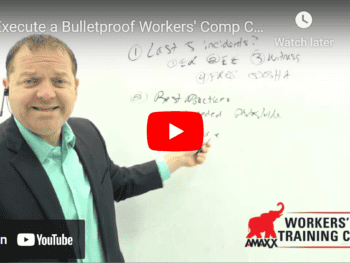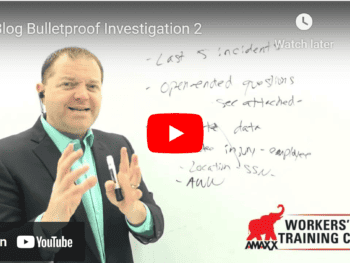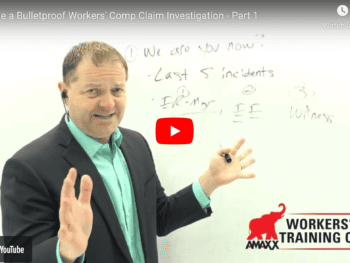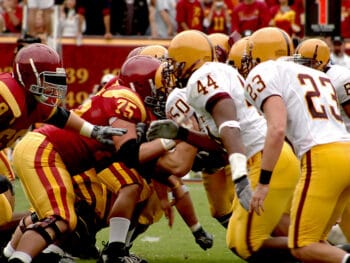The expansion of workers’ compensation laws to include mental injuries has added to the many challenges members of the claims management team face on a daily basis. Among these include the investigation of mental injury claims, the review of medical records and use of independent medical experts to properly position and defend these claims. While these challenges are numerous, failure to adopt effective claim management techniques can add to the cost of claims and decrease the efficiency of a workers’ compensation program.
What are Mental Injuries in Work Comp?
There are two main types of mental injuries in workers’ compensation claims. It is important for interested stakeholders to understand the variety of challenges one can face and effectively handle them:
- Physical/Mental Injuries: This type of claim typically results because of a physical injury. For example, the employee suffers a low back injury. Following the injury, the employee develops depression or other psychological and/or psychiatric sequela. The challenge in handling this type of claim is the employee is suffering from conditions that require more than one medical expert – one handling the physical component and the other including metal issues.
Click Link to Access Free PDF Download
“13 Research Studies to Prove Value of Return-to-Work Program & Gain Stakeholder Buy-In”
- Mental/Mental Injuries: This is an injury that results from work-related mental stress or stimulus that produces in many cases symptomology or ailments deemed to be compensable. The legal standard for this type of injuries varies in each jurisdiction. Claims for mental injuries usually require the diagnosis be made by a mental health professional and can be limited to certain conditions such as Post-Traumatic Stress Disorder (PTSD). In some instances, “mental/mental” injuries are not compensable – and can only result in liability if there is a physical injury.
Claims Investigation In Mental Injuries
Whenever an employee makes a claim (or can make a claim for mental injuries), it is important for the members of the claims management team to take note and use extra caution. These types of claims carry significant medical and indemnity exposures. They can also be costly to defend. Areas of investigation for mental injuries should include the following:
- Complete medical background, including medical care and treatment with psychological and/or psychiatric professionals;
- Information concerning the employee’s history of substance use and/or abuse. This should also include the use of alcohol, prescription medications, and street drugs. Employees are often hesitant to answer questions about these matters and can become a point of contention during recorded statements and depositions;
- Family history and interpersonal relationship information. This can include adoption, gender identity dysphoria or divorce;
- Criminal background check and arrest records; and
- Information concerning the employee’s credit history and insurance claims.
Aggressive Defense of Mental Injury Claims
Members of the claims management team must treat all employees with the respect and dignity they deserve. It is important to confront cases involving psychological and/or psychiatric claims with an added level of care given the sensitive nature of these issues.
- Investigation: Never leave a stone unturned when handling these cases. It is important to obtain complete information about the employee and the events surrounding the injury. Important factors include whether the employee directly witnesses the incident leading to the claimed mental injury, the magnetite of the mental stress suffered because of the incident, the nature, and quality of fear and anxiety connected with the event in question and whether the stressor is something beyond what one would ordinarily experience.
- Experts: In many mental/mental workers’ compensation claims, an effective defense will require the medical opinions of multiple medical experts. This will often include psychologists, psychiatrists, neuropsychiatrists, therapists/counselors and/or social workers.
- Legal: Given the complexity of these type of claims, members of the claims management team often refer these cases for defense. Before a referral is made, a claims handler may consider setting the claim on for a “roundtable” session or having it reviewed by a peer. Using an aggressive defense attorney is a solution when all else fails.
Conclusions
Workers’ compensation claims that involve a psychological and/or psychiatric component require members of the claims management team to be fully engaged. This is due to the fact the exposures can be costly, and bad decisions can negatively impact a program’s bottom line. Interested stakeholders need to understand the issues involved and defend these matters with care to be successful.

Author Michael Stack, CEO Amaxx LLC. He is an expert in workers’ compensation cost containment systems and helps employers reduce their workers’ comp costs by 20% to 50%. He works as a consultant to large and mid-market clients, is a co-author of Your Ultimate Guide To Mastering Workers Comp Costs, a comprehensive step-by-step manual of cost containment strategies based on hands-on field experience, and is founder & lead trainer of Amaxx Workers’ Comp Training Center.
Contact: mstack@reduceyourworkerscomp.com.
Workers’ Comp Roundup Blog: https://blog.reduceyourworkerscomp.com/
©2018 Amaxx LLC. All rights reserved under International Copyright Law.
Do not use this information without independent verification. All state laws vary. You should consult with your insurance broker, attorney, or qualified professional.




